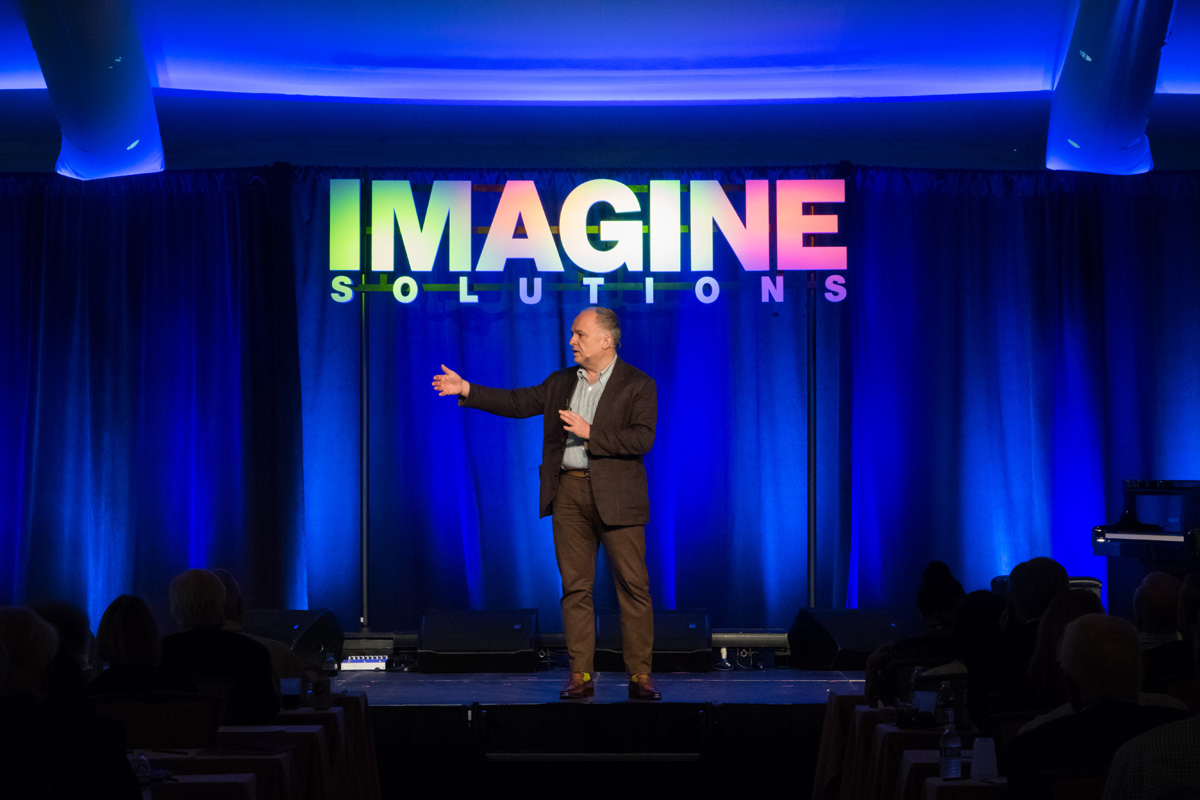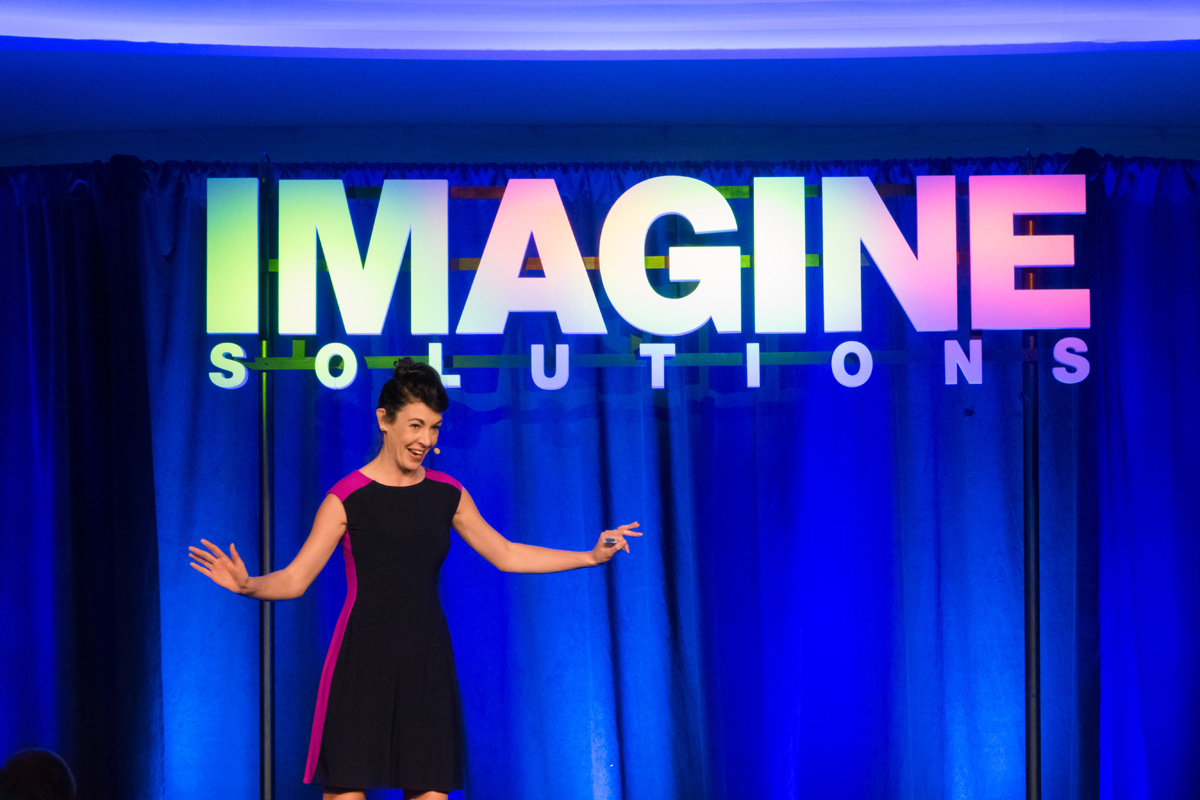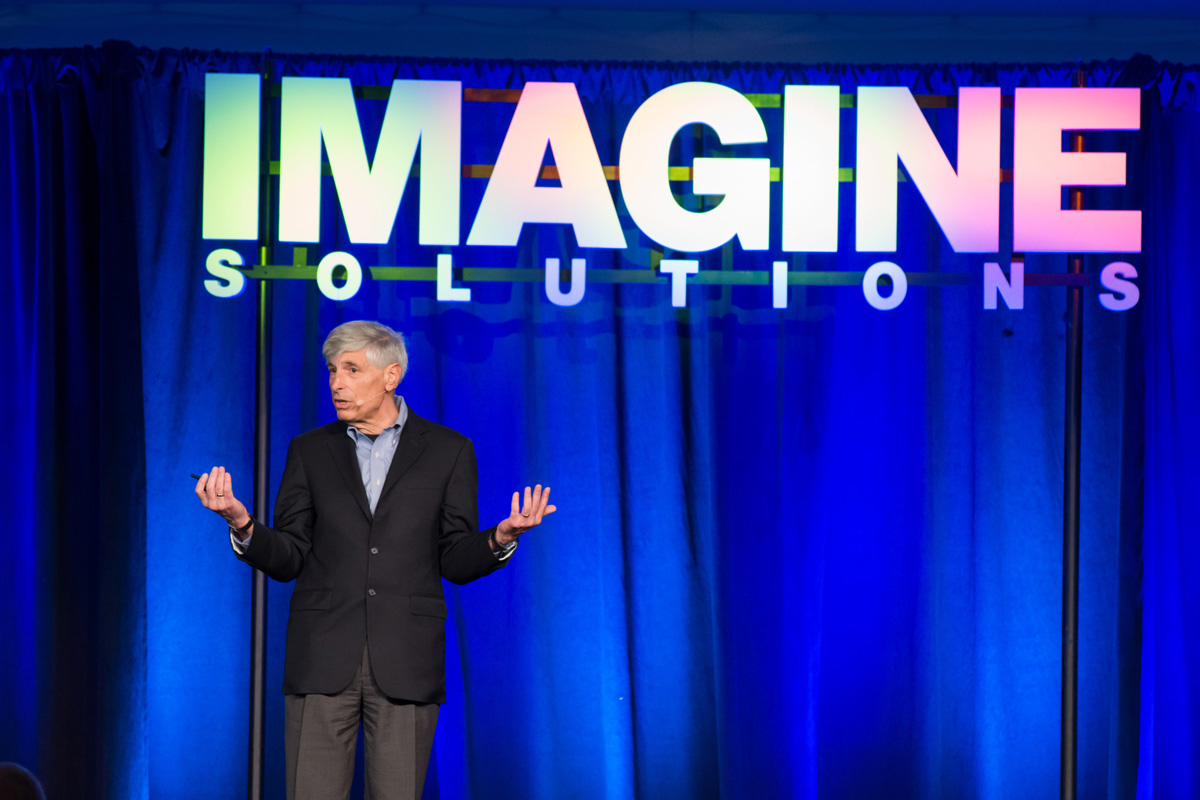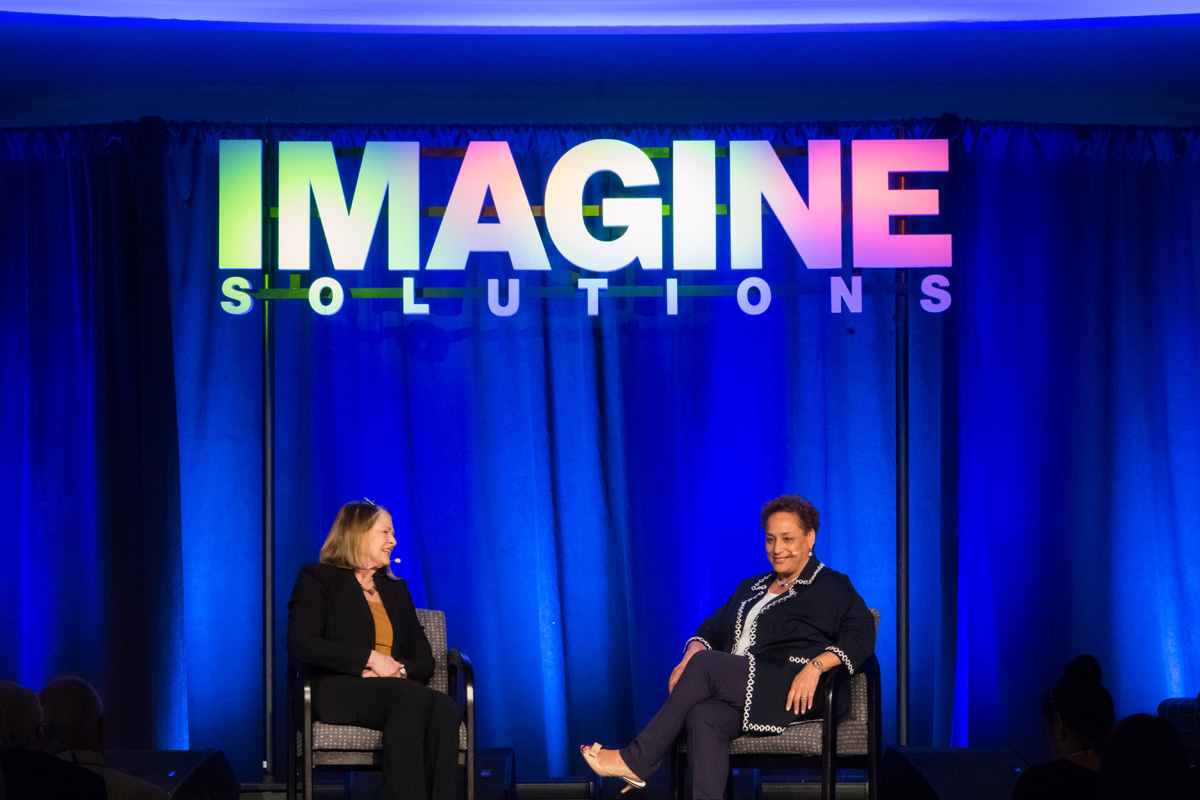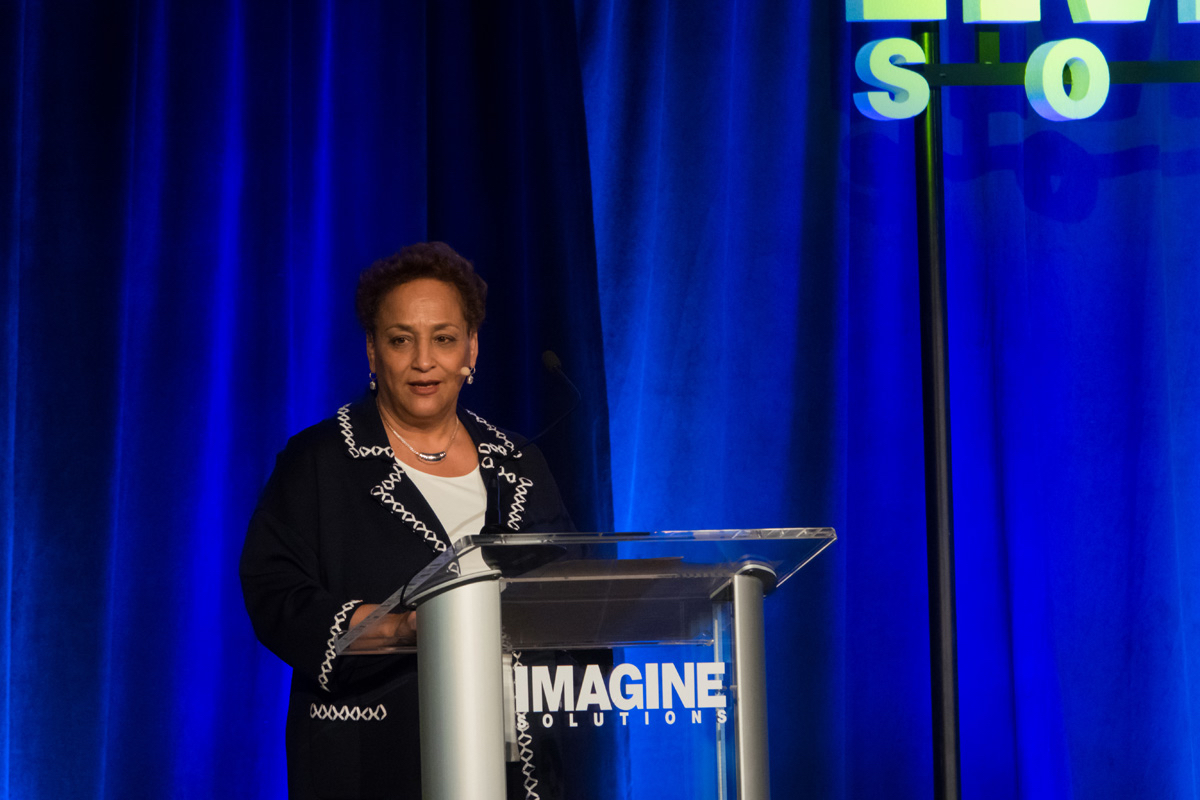Redefining a Multi-Stage Life
Economist Andrew Scott delves into the topic of aging from the perspective of longevity. The traditional structure of time, in which we progress through life in an orderly, three-stage fashion – education, followed by work, followed by retirement – has changed. We have more time, so we have to reconsider how we live out our lives. Not only do we need to reframe the way we think about our material assets, but we have to adjust how our relationships and intangible assets will translate. It’s a big question, one that will impact whole populations. One that, in fact, we’re already seeing as relevant, with rapidly aging demographics, and changing behaviors among younger people.
00.00
it is now my pleasure to give you professor Andrew Scott well good morning everyone and it's a pleasure to be here that pleasure was only increased this morning when I looked up and saw the Sun Rise and heard that it was snowing in London so it's fantastic to be here and it's great to to be among such a great cast you really have got a tremendous team of experts so congratulations to the organizers for putting it together now it's been suggested that I should focus on the topic of longevity and work so that'll be the main thing I'll focus on I'm gonna base my comments around my book the hundred year life which was written with my colleague at London Business School Lynda Gratton Linda's a psychologist and I'm an economist and I wanted to write the book because I was just increasingly frustrated around the
01.01
standard narrative about aging and an ageing society and I'm pleased to say the books done brilliantly it's been a sort of international bestseller and I'd like that's because we crafted a beautiful book but I think that's because actually increasingly societies around the world are wanting a different dialogue around aging they want one around longevity because my fundamental thesis is that this is actually really about time not aging it's about time and given the increases in life expectancy that Laura's said has already happened and is likely to come we have a lot more time but we don't see it like that we see it as about aging and that's because we see this extra time through the existing social narratives that we have we see it through our existing structures of time and the structure of time that we created in the 20th century involved a three stage life one of
02.02
Education followed by work followed by retirement and viewed within the confines of that three stages more life is about end of life it's about aging but we don't have to stick with those existing structures of time if we have more time we can structure time differently that is what we are already doing and what you're going to see more and we're living our lives differently because we have more time and to focus just on Aging is to me to fundamentally misrepresent what this means more time is about all of life and not just end of life and call it aging seems to me to misrepresent entirely the issue today in the UK 78 year olds have the mortality risk of 65 year olds from a hundred years ago that doesn't seem anything about ageing that seems to be the opposite of ageing it's about being younger for longer we
03.00
have more time how do we want to structure that time and how should we use it so let me sort of build on this thesis about having more time so let me ignore the first 20 years of your life you can forget about all those youthful indiscretions you had I want to ignore the last 10 years of your life and I'm gonna give you a weekend and I'm gonna give you some time to sleep and relax at the end of the day but everything else I want to call productive hours and if you live to 70 you have around about a hundred and twenty thousand productive hours even if it's a hundred as Laura was saying this generation coming through have a very plausible likelihood of achieving then they have nearly an extra 100,000 hours and so the question you have to answer or we as a society after answer is what do we want to do with those extra a hundred thousand hours now we're already seeing everyone
04.02
asking this question we see people in retirement who now have a lot more time saying how should I spend my retirement and we're redesigning a retirement I see people in their twenties behaving very very differently because they have I think a lot more time the average age of marriage in the u.s. now is closer to thirty than 20 the average age you which you have your first child is thirty rather than twenty people are making those traditional adult commitments much later than they used to because when life Lee asked for longer options become more important you don't commit so early you invested the options available to you and then of course it's not just those who are twenty or those who are 70 her looking at living life differently say to people in their forties are because I'm going to suggest later if you're in your mid-40s you've got more work to come than you've done already which is a very sobering thought and a different way of looking at life so seeing people in their forties behave differently last year in
05.02
the UK for the first time ever you are more likely as a woman to have a child in your forties than you are under 20 we've never seen that before we are seeing major changes in how we restructure life and my feeling is a three-stage life really cannot survive this extension out now one of the things we know we're gonna have to do with this extra time if we're living to a hundred is work there's kind of no way out of this you know if we're going to live for longer we either have to save more or work more and given most people two attitude toward savings the answer is gonna have to be that we're gonna have to work more and yeah couldn't the calculations I've looked out I look at sort of average savings and average rates of return if you're in your mid forties and you want a pension that's worth say 50% of your final salary you're probably working to you're early to mid seventies and if you're 20 you're
06.03
probably working to your late 70s or your early eighties and this is a sort of the bit of the talk there it just depresses everyone we said to the publisher we're at the book we can either call the book a hundred year life for a 60 year career which you think would sell best I said we think a hundred year life is gonna be much more appealing I hate these generational labels baby boomers Millennials I think they really aren't very informative but perhaps one reason why millennia was behaving different in the workplace you say no they've got a long time in that workplace why make a rush to start and I'm certainly not thinking about a job for life with you if I've got a 60 year career ahead of me so we're gonna have to think about things in a very very different way and what frustrates me when I look at so much of the conversation around how we respond to longevity is no one's really trying to play around with the parameters of the three stage life it's about let's push back the retirement age let's lower the pension
07.00
rate or increase the savings but it really doesn't work there isn't a way of salvaging the three stage life in a way that works over a hundred when I first started giving this talk of the business gone I was often talking to 40 50 year old executives on corporate programs and I would say to them you know you can have to work for longer you're living longer and the general reaction was shit okay and I kind of I was sort of a problem here because I'm telling people that they're gonna on average live for longer than their previously thought they were gonna be healthier for longer and the reaction is shit this should be something we can make something good but if we just stretch that three-stage life to try and make it last over a hundred it doesn't work in the 20th century we invented teenagers in the 20th century we invented retirees in the 21st century we are inventing whole new stages and ages of life to match this greater
08.00
longevity now the reason we think so many people sort of seem disheartened when we said they're gonna live for longer and be healthier for longer what do you think about what supports a good life we have this asset framework in mind on the left-hand side of your financial assets your savings your pensions your health then your right hand side of what we call your intangible assets and we think there's three main buckets of those the first is your productive skills the skills and knowledge that get you through your career what you learn at college but also your peer group your professional peer group who you learn so much from then there's your vitality assets and they're of two forms they're your physical and mental fitness but also your friends and relationships and study after study says that what matters in life is your friends and relationships money makes you happier it doesn't make you happy for close friends close relationships the ability to love to create the space to love and be loved is what makes people happy and then the final part of your intangible assets
09.01
which we think hasn't been very important but we were coming recently important we call your transformational assets your ability to deal with change because in a three-stage life you don't get much change but in a long life full of many changes you don't have to be much more flexible about your identity and who you are and what you are doing and if you think about these assets if you just take the three stage life and try and stretch it over a hundred itself as the financial problem you work longer you go more therefore you can have a longer retirement but if all you do is stretch out that second stage of work look what's happening to your intangible assets there is nothing you can learn at twenty that have still be valid in the time you hit 70 or 75 and think about the technology coming down the line and how that comments going to get even stronger we have to think about major upgrades to education later in life think about your mental and physical health with a 60 year career working the type of hours we demand from careers it
10.01
isn't gonna work and relationships you can't buy a lifelong friend at aged 80 it's something you have to invest in right the way through your life so if we think about the three-stage life it was designed in the 20th century for a life expecting around 70 it worked it cannot be stretched to make life last for a hundred so the three-stage life is already breaking up retirement is no longer a singular concept where everyone are the same age comes to a hard stop it's been reinvented many times over we are seeing the creation of a multi stage life and with a multi stage life you might have one stage your career which is about making money one stage your career a better work/life balance or maybe about exploration and self-discovery another maybe about putting something back into the community and you will have in this multi stage life many shifts of identity many shifts of what you need to know and how you need to behave you don't have to be comfortable with your
11.01
transformational assets and with this come some major changes to how we see it Chris we see the end of lockstep William Faulkner once said that if you ever fall out of lockstep you get trampled underfoot in a three stage life we had a linear career you leave college you start your career and it goes upwards or it goes sideways if you tell me your age I know the stage of your career you tell me you're 21 I know you just graduated you tell me you're 40 I know you're middle management you tell me you're 60 I know you're thinking about retirement with a three stage life there's only one way of arranging it education work retirement you can't work first and then have your education you can't retire first and then work but in a multi stage life I can structure my life in lots of different ways I could do the money making first and the social stuff later or I can flip it around one of the things that shaped my book was my middle child at the end of his University said dad I'm not gonna get a job I'm gonna
12.01
travel for two or three years I was kind of upset about this I was anxious because when I graduated if you can get a job straight away what was wrong with you weren't you committed did you have a challenge do you not like this idea of work three years later he's just started work on a graduate for a large consulting firm the Graduate training program he's 24 I said Louie aren't you one of the oldest he said no I'm the youngest we go from 24 to 31 that's the Graduate recruitment program of a consulting company what we're seeing is a whole bunch of new HR issues begin to emerge do I carry on bothering with a graduate recruitment program if people aren't going to be with me forever what about all those 20 30 year olds home Brooklyn in Shoreditch in London playing around with a form of entrepreneurship which doesn't bring you much money so that when they're in their 30s they're gonna want to get a mainstream job they're terribly creative innovative but they're not at all house trained how do I get people used to be
13.02
senior roles carry on working in less senior roles because they still want to but with more flexible hours how do I deal Inc age and pay because one of the reasons so many people lose their job in their 50s is that pays going up with their age but their productivity isn't so how do we create within the framework of work more flexible ways of doing things how do I think about learning and development when someone whose age 30 is not gonna be with me for another 30 years what we're seeing right now is a major change in how we live our life and we're seeing a major change in how we structure our careers that multistage life is beginning to emerge with serious transitions and changes in between our children are going to live a light length of life and a career structure that is really so different from the one that we were used to our society is based around a technology and a longevity that has created an ocean of
14.01
work that is no longer underpinned by the same technology and the same longevity we're gonna see a massive social experiment as we find out how best to use these times I'm gonna see corporates start to adjust accordingly not all corporates are responding most want nothing to do with this they're behind what individuals are demanding from them what you're gonna see is those firms where people matter most where human capital is most important we'll be the most adept at responding we're going to move away from standardization more and more towards customization a world where age is no longer stage this is the beginning of a major social experiment we're about 10 or 20 years into it we have another 30 40 years to come thank you very much ladies and gentlemen [Applause]

